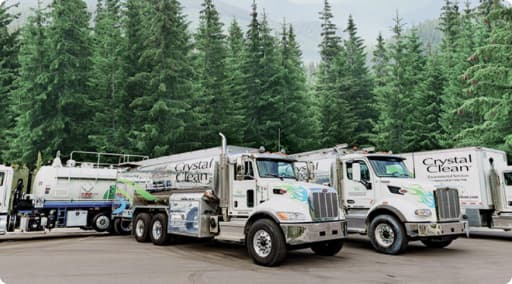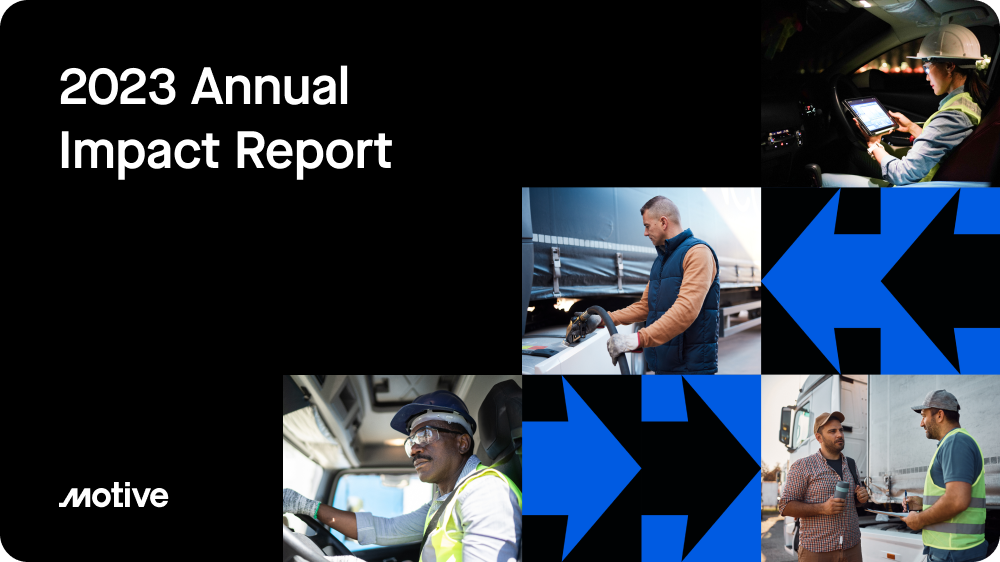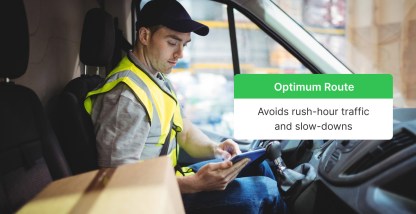- Reducing delivery time may translate to increased customer satisfaction
- Routes can be made more efficient, reducing fuel consumption
- Tracking of valuable cargo assures customers
While the goal of any trucking company is to have a healthy bottom line, one of the most important aspects of achieving that goal is keeping the customer satisfied.
Customer service is paramount to success in any business, but when it comes to the trucking industry, delivering goods and services on time and accurately is critical. Truck tracking helps make it happen.
In a January 2020 article in the Journal of Commerce Annual Review, Jeff Tucker, CEO of Tucker Company Worldwide said that the use of truck tracking technology could allow shippers to achieve 90 percent visibility into every truckload location by the end of 2020, if they make it a priority.
What is truck tracking?
Your fleet is most likely the biggest investment your company has. Knowing where your vehicles are at any given moment is essential to an efficient, cost-effective operation. A truck tracking system does just that.
So how does it work? A small GPS tracker device is connected to a truck’s on-board diagnostic port. The best devices are plug-and-play and don’t require the use of an installer or any downtime.
The tracking device collects data from the vehicle including GPS location, distance traveled, speed, fuel usage, idle time, and any unusual braking or turning. The gathered data is then sent to an online dashboard, generally through a cellular or WiFi connection. The data can then be organized into intuitive reports and alerts, which you can then analyze to better manage your operations.
Reducing delivery times by using truck tracking
Cutting delivery times should be a goal of all fleet managers. With a superior truck tracking system, both dispatchers and managers can track their fleet to accurately determine when their drivers are arriving. The ability to tell a customer exactly where their cargo is and precisely when it will arrive will quickly help build trust between the company and the customer.
The information provided to fleet managers can help in so many other ways as well, including:
- Reduce the use of confusing or traffic-heavy routes. May result in quicker response time
- Relocate the nearest vehicles to your customers. May result in faster deliveries
- Track potential vehicle issues that could cause delays or require immediate maintenance. May result in less unexpected vehicle downtime
- Track fuel usage. May result in money saved and reduce emissions
Truck tracking helps customer service
In a recent article in American Shipper, a logistics manager for an agricultural transport company expressed the idea that customer service is a dying art form. Part of the reason, according to the manager, is the inability to get straight answers or prompt responses from carriers. In the agricultural industry, where loads being carried have quick expiration dates and spoilage can drastically affect profitability, superior customer service and getting quick responses are critical to the success of their operations. But it’s not always easy.
New urgencies may come up — drivers may fall behind in their routes or finish too early, or your most important customer might call needing unplanned expedited service. The fact is, challenges happen every day with your fleet. Some small, some big.
Remembering that customer satisfaction is critical to the success of your operation can go a long way to building trust with the customer and help generate both new and repeat business.
Live truck tracking provides a live assessment of location history, driving patterns, routes to avoid, approximate arrival and exit times, and other important data. By using this information, managers can optimize specific routes for each driver’s schedule. In turn, drivers will be more efficient and complete more deliveries each day, which can increase productivity, profits and customer satisfaction.
Truck tracking systems may also provide more flexibility when customers require quicker deliveries or additional assistance. All of this can help build a better, more trusting relationship with your customers.
Truck tracking is a boon to customer service representatives
In the time before GPS truck tracking became popular, most fleet dispatchers had to rely on their drivers to inform them of their location, approximate delivery times, and any mechanical issues they were facing. Communication was much slower and oftentimes inaccurate. There was no sure way to determine where a driver was located or where they had been. It was not the type of scenario companies desired.
As a result of this, customer service reps could not give accurate location and arrival information to their customers. Truck tracking changed that. Managers now get a view of the fleet at any given time.
Customer service reps now have the ability to inform customers much more precisely, virtually eliminating the unexpected. And the “unexpected” almost always ends up costing money when it doesn’t have to.
Even your customer invoices can become more accurate and easy to generate when asset tracking is turned on, telling you exactly where every truck and trailer has been and for how long.
Truck tracking empowers you to provide outstanding customer service
The customer relationship management (CRM) firm Salesforce published an article based on two global surveys. More than 10,000 respondents answered questions about what determines good customer service. Salesforce showed that four factors lead to great customer service:
- Service that is fast (real-time or always-on)
- Service that is personalized
- Service that provides a connected experience
- Service that’s proactive, offering a resolution before an issue or disruption occurs
Truck tracking gives you a real gateway to achieving all of the above items. GPS tracking is real-time, it is personalized for your customers, it is connected to their most important concerns (i.e. receiving deliveries on time and in good condition), and it gives your dispatchers, customer service reps or managers the opportunity to offer a resolution quickly, and in many cases before an issue even occurs.
Implementing a robust truck tracking system with monitoring solutions that address your company’s specific needs is likely to incur costs in the beginning, but the benefit of happy, long-term customers can far outweigh the cost. In addition, applying truck tracking can help achieve a carrier’s goal of at least 90 percent visibility of every truckload location.








